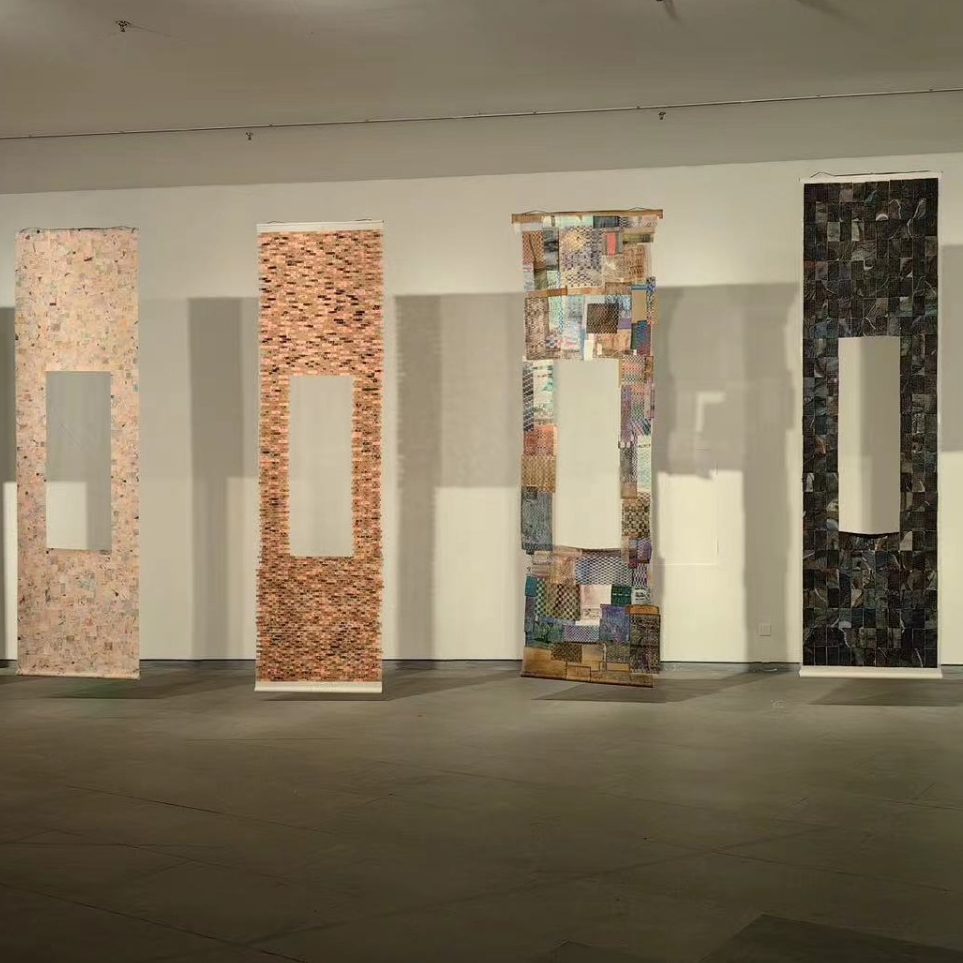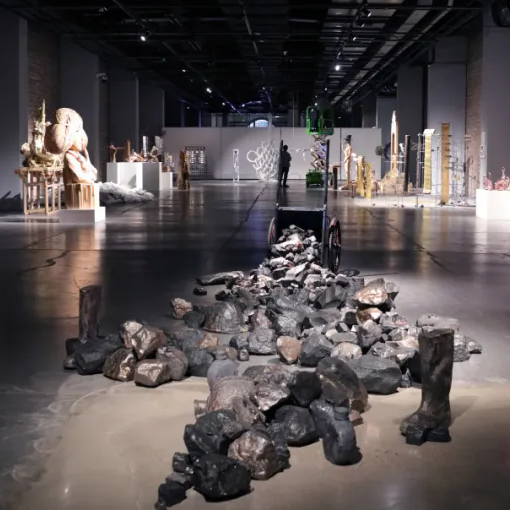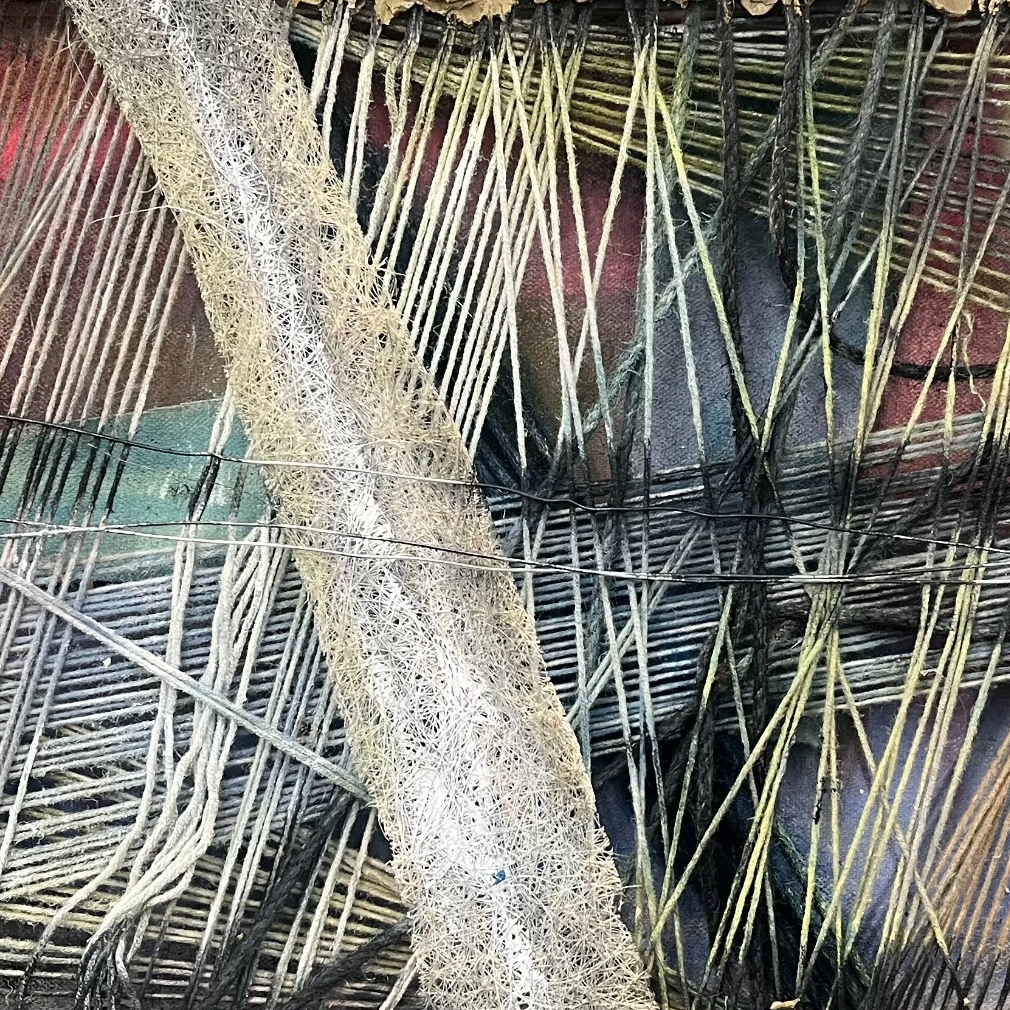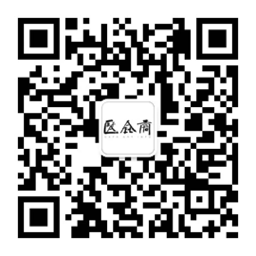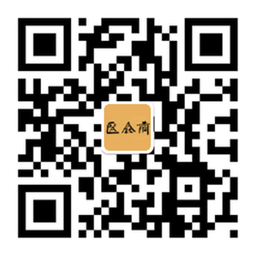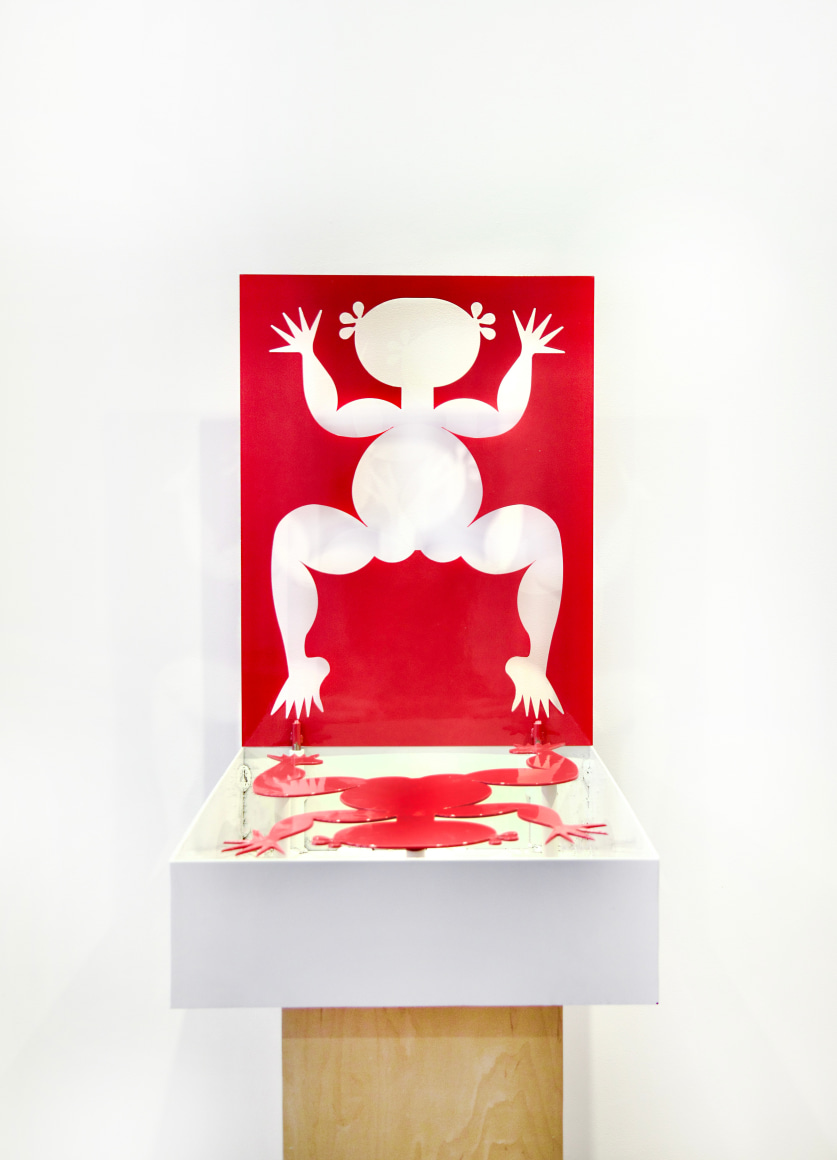
Lu Shengzhong, Shape and Shadow III, 2002; Painted steel, 81x50x66cm LSZ-SCP-9007
Chambers Fine Art presents The Cutting Edge of Lu Shengzhong at its gallery in New York. In the history of Chambers Fine Art, Lu Shengzhong (1952-2022) played a role of particular importance, both chronologically and as an indication of the guiding principles of the gallery after It was established in New York in 2000. This display of selected works is a tribute to Lu’s singular vision as an artist and as an influence on several generations of younger artists at the Central Academy of Fine Arts (CAFA), Beijing where he taught for many years.
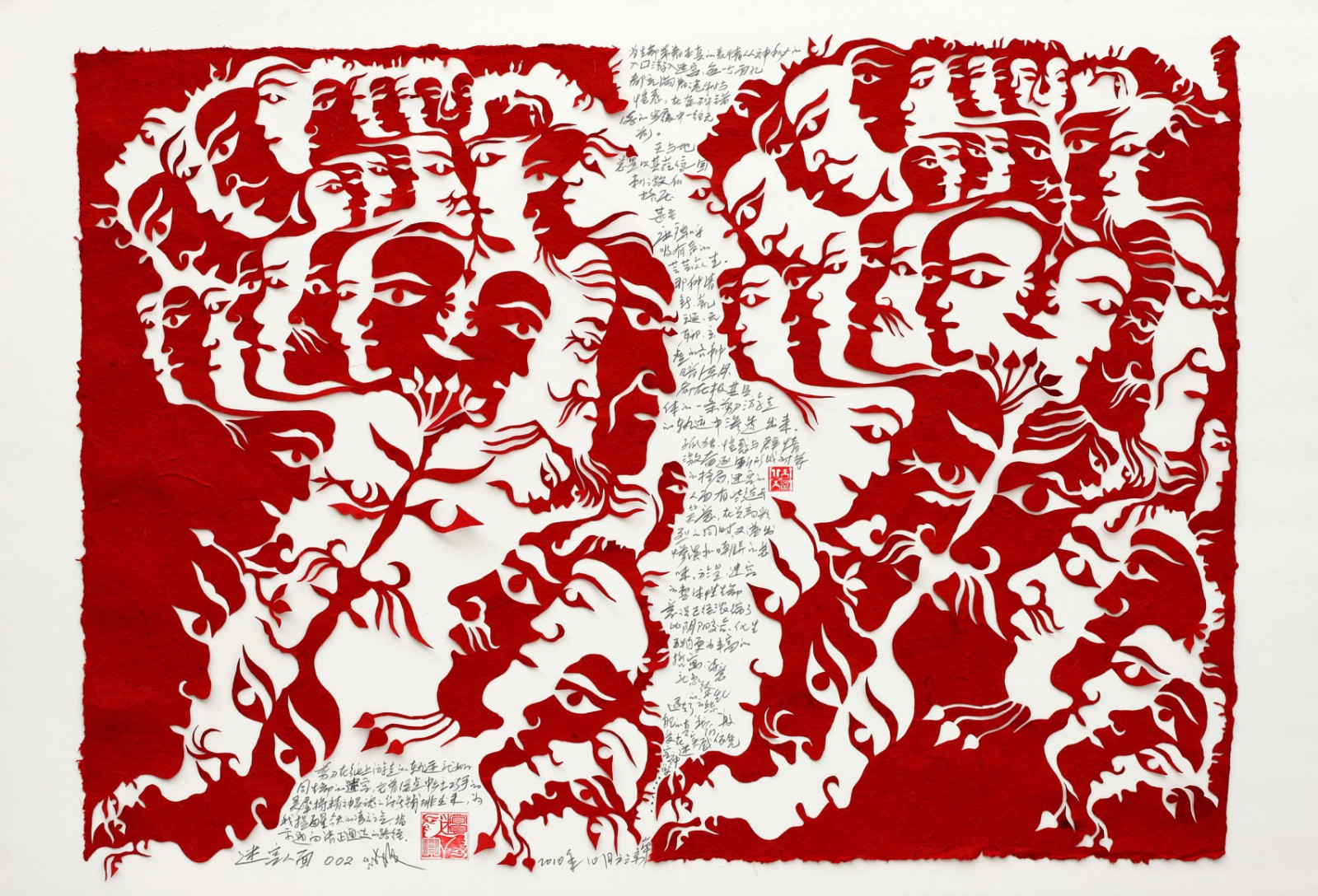 Lu Shengzhong, Face Maze 002, 2010; Paper-cut, thread on paper with pencil inscriptions, 69x93cm, LSZ-PAP-0102
Lu Shengzhong, Face Maze 002, 2010; Paper-cut, thread on paper with pencil inscriptions, 69x93cm, LSZ-PAP-0102
When Christophe Mao made the decision to open a gallery devoted to contemporary Chinese art in the years immedIately before the millennium, there was an urgent need to identify a group of artists who did not conform to what had already become a stereotype in the West, the flashy oil paintings associated with Political Pop and Gaudy Art. When he was introduced to Lu in Beijing, he immediately felt that he would be an ideal candidate for his first exhibition of contemporary art as at that time the plan was to have alternate exhibitions of contemporary art and Classical Chinese art and scholar’s objects.
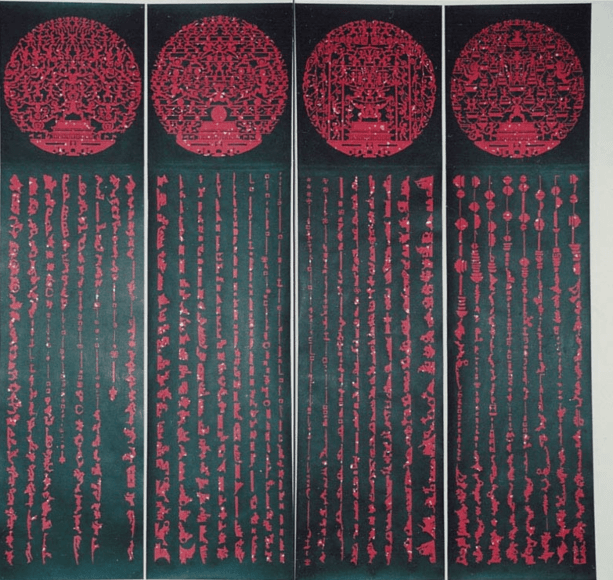
Lu Shengzhong, After Effects of Tiananmen VII, 2000; Paper-cut, Set of 4, 140x36cm each LSZ-INS-0060
Born in Shandong Province China in 1952, Lu graduated from the Central Academy of Fine Arts in Beijing in 1987, where he had been associated with the Department of Folk Arts. Continuing his research, he made numerous trips in Shanxi Province and other areas where he developed considerable expertise in the tradition of paper-cuts pasted on walls, windows etc., particularly for Chinese New Year. He was the author of numerous books on the subject.
Simultaneously, he was establishing a reputation with his own remarkable paper cuts in which he said, he “walked away from the cultural confusion of the time and turned back to the villages, to traditional Chinese folk art.” He began working on a very large scale, as in the 1990 installation Hall of Calling the Soul filled with thousands of the “l(fā)ittle red figures ” that were to become his signature as a paper cut artist.
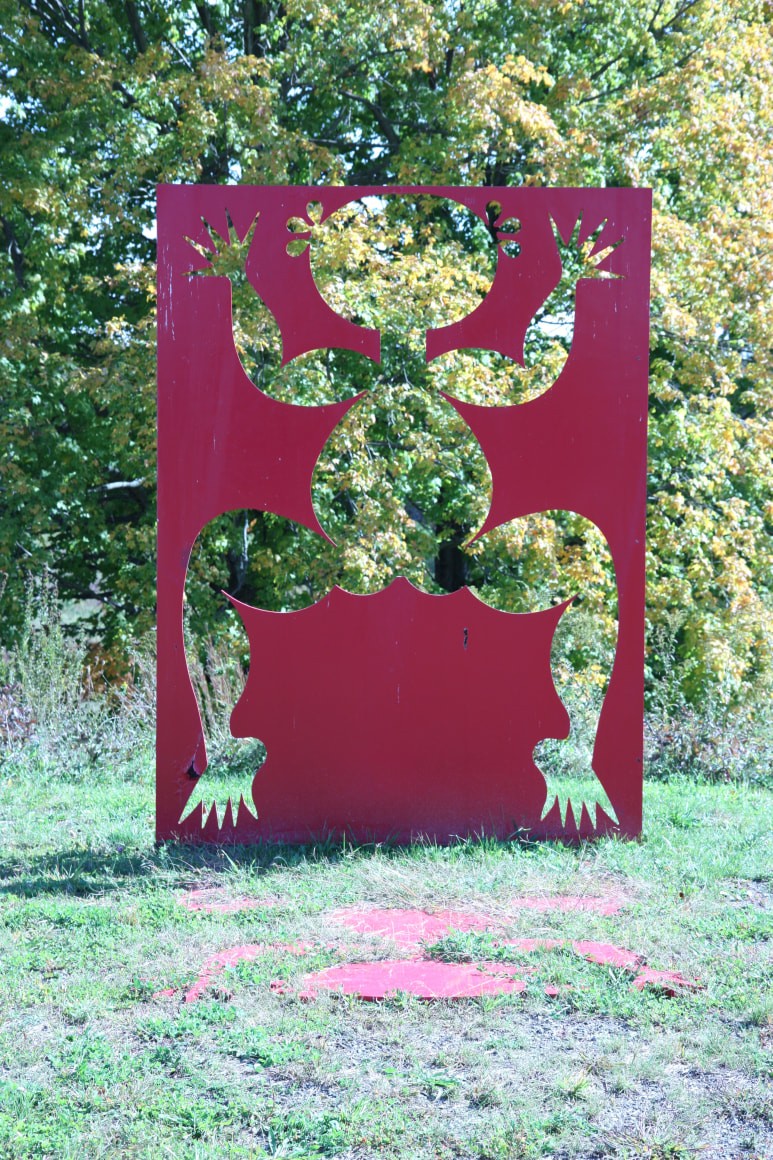
Lu Shengzhong, Shape and Shadow III, 2007; Painted steel, 240x180x2cm, Base: 240x180x2cm LSZ-SCP-7004
The title of Lu Shengzhong’s first exhibition at Chambers Fine Arts, First Encounter (November 11, 2001 – January 2, 2002) refers not only to the first meeting between Christophe Mao and Lu Shengzhong but also to the introduction of Lu’s art to the United States. In the large vertical panels of Poetry of Harmony, lines of what appear to be Chinese characters are in fact left-over scraps of paper from the intricately cut circular forms at the top. The relationship between positive and negative forms is of crucial importance in Lu’s art. Favorably reviewed by Holland Cotter in the New York Times (January 5, 2001), he noted that Lu “used this fragile medium , notable for its lacey, intricate patterns, to create a temple-like installation.”
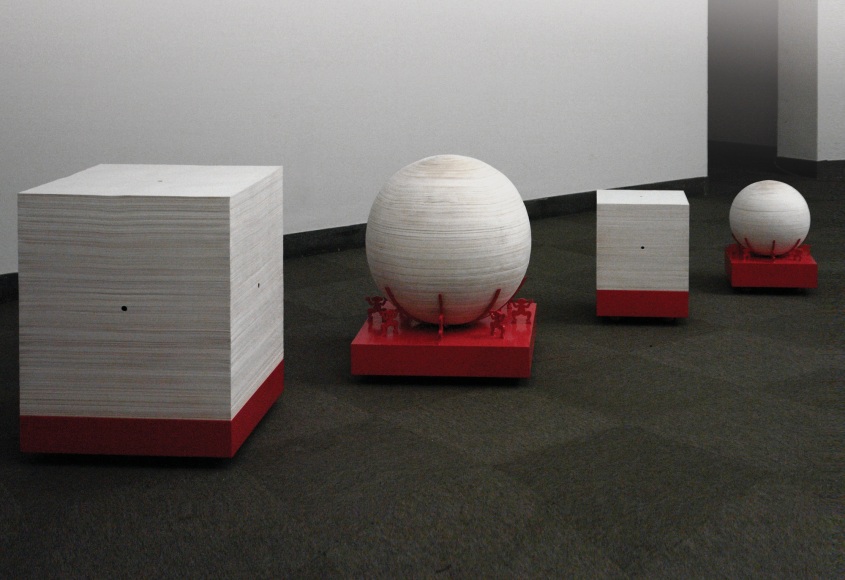
Lu Shengzhong, Square Earth, Round Heaven, 2007; Paper sculptures on metal platforms, Set of 4, dimensions variable, Largest: 33x31x31cm, LSZ-SCP-7006
Two more exhibitions followed at Chambers Fine Art, Lu Shengzhong’s The Book of Humanity (November 6, 2003 – January 4, 2004) and Square Earth, Round Heaven: Lu Shenzhong Works (2007). In the former, there were two series of works, sets of books in which red on black or black on red collages were gathered in book form, some with Western style bindings, some with traditional Chinese sewn bindings, and Human Bricks in which the hundreds of sheets of red paper from which“l(fā)ittle red figures “ had been cut were assembled in multi-layered collages. In the latter, Lu moved into three dimensions, assembling multiple layers of paper into cubes and spheres, described by Robert E. Harriet, Jr., as the “visual and spatial correlates of round/heaven and square/earth that permeates Chinese art and architecture.
In his role as an educator, Lu became the director of the department of experimental art at CAFA in 2004 and retained that position until his retirement. Lu Shengzhong’s achievement as an artist was to develop the traditional Chinese craft of papercut in such a way that it was possible to use it not only for small scale individual works but also for installations of great complexity. For those who had the privilege to watch Lu Shengzhong at work, using his scissors with unerring skill so that complex designs in which positive and negative forms emerged effortlessly without any preliminary drawings, it was no suppose that the same gift could be used in the creation of three-dimensional versions of his “l(fā)ittle red men.”
About the Exhibition
Dates: December 4, 2023 – April 14, 2024
Venue: Chambers Fine Art
Address: Address: 55 East 11th Street, New York, NY; Artfarm, Salt Point, NY.
Courtesy of Chambers Fine Art.



